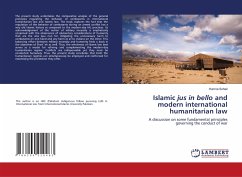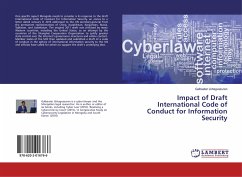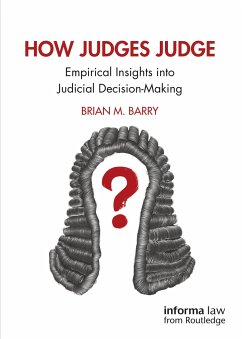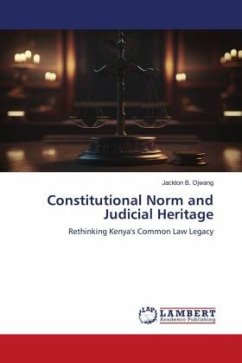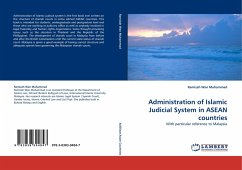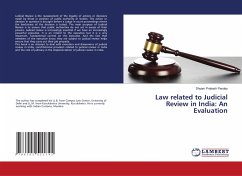
An Islamic Code of Judicial Conduct
Versandkostenfrei!
Versandfertig in 6-10 Tagen
58,99 €
inkl. MwSt.

PAYBACK Punkte
29 °P sammeln!
Islam presents a comprehensive legal system covering every aspect of human life. By providing a sound system for the administration of justice, Islam aims at ensuring justice to everyone. Together with this, Islam also provides a code of conduct to guide the behaviour of those who are appointed to implement law and justice in the society. However, the details of this ethical code have not yet been compiled and are lying scattered in the different classical works on Islamic law. Unfortunately, the intellectuals specialized in law are unaware of this rich intellectual heritage of Islam and, cons...
Islam presents a comprehensive legal system covering every aspect of human life. By providing a sound system for the administration of justice, Islam aims at ensuring justice to everyone. Together with this, Islam also provides a code of conduct to guide the behaviour of those who are appointed to implement law and justice in the society. However, the details of this ethical code have not yet been compiled and are lying scattered in the different classical works on Islamic law. Unfortunately, the intellectuals specialized in law are unaware of this rich intellectual heritage of Islam and, consequently developed a mistaken view that Islamic law does not provide any significant guidance with respect to the judicial ethics. The purpose of the book is to give a clear, accurate and simple account of the rules of Islamic judicial ethics as found in the Quran, Sunnah and other sources of the Islamic law with an investigative study of the Western models of judicial ethics. It is hoped that the study would not only benefit all those who are concerned with the judiciary in different capacities but will also serve as a guide for the future legislation on the judicial ethics.



